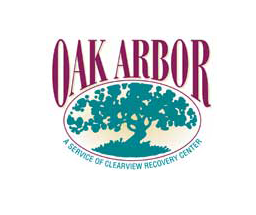Oak Arbor
4507 Highway 49 South
Hattiesburg, MS 39401
Phone: 601-545-2925
Toll Free: 888-291-0646
General Information: info@oak-arbor.com
Latangelia Howard,
Business Office Representative:
Referral Coordinator:
VA Grant Per Diem Coordinator:
Business Hours: 24/7
Improve Your Social Skills With Long-Term Residential Treatment
- By Admin
- •
- 13 Nov, 2018
- •
Addiction has a nasty way of robbing you of everything you have earned in life and leaving you trapped in what feels like a hopeless situation. One of the worst things that addiction can do is rob you of your people skills and make it difficult for you to keep a job or find a new one.

Thankfully, high-quality long-term residential treatment can not only manage your addiction but rebuild your lost social skills. Even better, attending one of these centers will help you beat your habit for good and live a happy life free from the hindrance of drugs.
Social Skills Degrade With Addiction
When you suffer from an addiction, you are going to focus heavily on feeding your cravings at the expensive of most other elements of your life. You might start alienating yourself from your friends and loved ones to hang out with those who do drugs.
Even worse, you might lose friends who become exasperated with your increasing addictive behaviors. The only people who are left to communicate with you are either those with whom you work or those with whom you do drugs.
As a result, you may find it more difficult to relate to others on a personal level. In fact, you might start finding it difficult to talk to people about anything other than drugs or your addiction.
If this situation has happened to you, you are not alone. Thousands of individuals have fallen into the same position and worked their way out of it. However, you might end up doing severe damage to your life and your career if you don't seek professional help right away.
Even worse, you might lose friends who become exasperated with your increasing addictive behaviors. The only people who are left to communicate with you are either those with whom you work or those with whom you do drugs.
As a result, you may find it more difficult to relate to others on a personal level. In fact, you might start finding it difficult to talk to people about anything other than drugs or your addiction.
If this situation has happened to you, you are not alone. Thousands of individuals have fallen into the same position and worked their way out of it. However, you might end up doing severe damage to your life and your career if you don't seek professional help right away.
Socialization Loss May Hinder Your Job Search
Successfully communicating and interacting with a variety of people is critical to success in any career. Before your addiction, you had no trouble talking to people at your job, both co-workers and clients. Unfortunately, your addiction has made it increasingly hard for you to stay focused on conversations and has degraded your socialization.
As a result, you may end up losing your job or getting very close to it. And if you aren't working at the moment, your lost social skills are only going to make it more difficult to find the right job for your needs. Therefore, you need to find a care method that will not only eliminate your addiction but improve your social skills at the same time.
As a result, you may end up losing your job or getting very close to it. And if you aren't working at the moment, your lost social skills are only going to make it more difficult to find the right job for your needs. Therefore, you need to find a care method that will not only eliminate your addiction but improve your social skills at the same time.
Long-Term Residential Treatment Can Help You Socialize
If you have lost your job or are struggling to find another one due to your fading social skills, you should go to a long-term residential treatment center right away. These professional facilities are designed to help individuals get back on their feet after experiencing a debilitating addiction. Beyond physical and mental health support, these centers provide:
- Friendly support from others suffering from addiction
- Professional help from skilled psychiatrists and addiction therapists
- Social interaction with a multitude of people from different walks in life
- Behavior adjustment methods to create healthier coping mechanisms
Earning these benefits requires attending a residential treatment center for a minimum of three months. Rehab facilities provide you with a place to sleep, prepare your food, and give you other amenities to make your stay more comfortable.
If you are out of work or on the brink of losing a job, attending one of these centers can get you clean and teach you the vital social skills you need to stay employed.
So if you find yourself struggling to regain your lost social skills after an extended bout with addiction, don't hesitate to get help at a long-term residential treatment facility. Contact Oak Arbor to learn more about this type of treatment and how it can restore your sobriety and personal happiness.
If you are out of work or on the brink of losing a job, attending one of these centers can get you clean and teach you the vital social skills you need to stay employed.
So if you find yourself struggling to regain your lost social skills after an extended bout with addiction, don't hesitate to get help at a long-term residential treatment facility. Contact Oak Arbor to learn more about this type of treatment and how it can restore your sobriety and personal happiness.
You might not know whether a loved one struggles with addiction unless you recognize the symptoms of such a problem. Take a look at four potential signs.
Do you struggle with addiction, or do you know someone who does? If so, read our blog to learn about four commonly asked questions about addiction.
Some individuals have a naturally high tolerance to particular drugs, while others develop tolerance over time. Learn more about this phenomenon.
If you can't sleep either without chemicals or because of them, learn about the relationship between substance abuse and sleep problems.
Does your substance abuse comes from personality or inherited proclivity? See three key points that can help you understand the genetic side of addiction.





